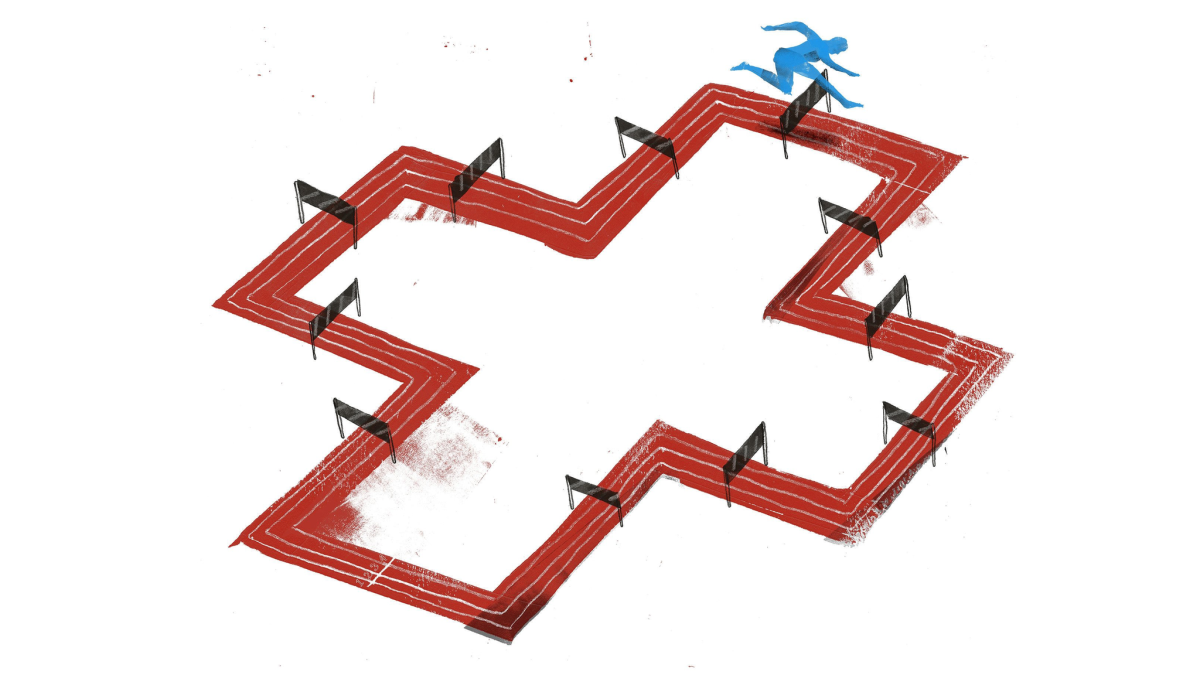Op-Ed: Get ready for an even bigger threat to Obamacare

- Share via
Now that the Supreme Court has issued its ruling in the Hobby Lobby case, the legal fight over the Affordable Care Act will shift a few blocks away to another Washington courtroom, where a far more fundamental challenge to Obamacare is about to be decided by the powerful U.S. Court of Appeals for the D.C. Circuit. Indeed, if Hobby Lobby will create complications for Obamacare, Halbig vs. Burwell could trigger a full cardiac arrest.
The Halbig case challenges the massive federal subsidies in the form of tax credits made available to people with financial need who enroll in the program. In crafting the act, Congress created incentives for states to set up health insurance exchanges and disincentives for them to opt out. The law, for example, made the subsidies available only to those enrolled in insurance plans through exchanges “established by the state.”
But despite that carrot — and to the great surprise of the administration — some 34 states opted not to establish their own exchanges, leaving it to the federal government to do so. This left the White House with a dilemma: If only those enrollees in states that created exchanges were eligible for subsidies, a huge pool of people would be unable to afford coverage, and the entire program would be in danger of collapse.
Indeed, the Halbig plaintiffs — individuals and small businesses in six states that didn’t establish state exchanges — objected that, without the tax credits, they could have claimed exemption from the individual mandate penalty because they would be deemed unable to pay for the coverage. If the courts agree with them, the costs would go up in all 34 states that didn’t establish state exchanges, and the resulting exemptions could lead to a mass exodus from Obamacare.
The administration attempted to solve the problem by simply declaring that even residents of states without their own exchanges were eligible for subsidies, even though the law seemed to specifically say they were not. The administration argues that although the statute’s language does limit subsidies to residents of places with exchanges “established by the state,” that wording actually referred to any exchange, including those established by the federal government. In January, a district court judge upheld that interpretation, allowing the subsidies to continue.
But the D.C. Circuit Court may see things quite differently, especially in light of recent Supreme Court opinions holding that the Obama administration has exceeded its authority and violated separation of powers.
In Michigan vs. Bay Mills Indian Community, for example, Justice Elena Kagan noted that “this court does not revise legislation … just because the text as written creates an apparent anomaly as to some subject it does not address.” In Utility Air Regulatory Group vs. EPA, Justice Antonin Scalia, writing for the majority, stressed that “an agency has no power to tailor legislation to bureaucratic policy goals by rewriting unambiguous statutory terms.” And a third strike came last week in National Labor Relations Board vs. Canning, when the Supreme Court unanimously found that President Obama had violated the Constitution in circumventing Congress through his use of recess appointments.
The D.C. Circuit Court is expected to rule any day now on the Halbig case, and supporters of the Affordable Care Act are growing nervous. In January, an Obamacare advocate described the Halbig case to a reporter for the Hill as “probably the most significant existential threat to the Affordable Care Act. All the other lawsuits that have been filed really don’t go to the heart of the ACA, and this one would have.” And in a fraught oral argument before the D.C. Circuit Court, the administration seemed to struggle to defend its interpretation.
If the ruling goes against the White House, it’s hard to overstate the impact. Without subsidies, consumers in 34 states would face huge additional costs and, because of those costs, potential exemptions from the law. And voters — a substantial percentage of whom have never liked Obamacare — would be further alienated from the Democratic Party just in time for midterm elections.
Moreover, a ruling against the administration would mean that Obama has been responsible for ordering what could amount to billions of dollars to be paid from the federal Treasury without authority. And it would mean the administration has committed yet another violation of the separation of powers.
The administration’s loss in the Hobby Lobby case is a bitter pill to swallow, but it is not a lethal threat to Obamacare. For critics of the law, Halbig is everything that Hobby Lobby is not. Where Hobby Lobby exempts only closely held corporations from a portion of the ACA rules, Halbig could allow an mass exodus from the program. And like all insurance programs, it only works if large numbers are insured so that the risks are widely spread. Halbig could leave Obamacare on life support — and lead to another showdown in the Supreme Court.
Jonathan Turley is a professor of law at George Washington University and has testified in Congress on the executive orders under the Affordable Care Act.
More to Read
Sign up for Essential California
The most important California stories and recommendations in your inbox every morning.
You may occasionally receive promotional content from the Los Angeles Times.










